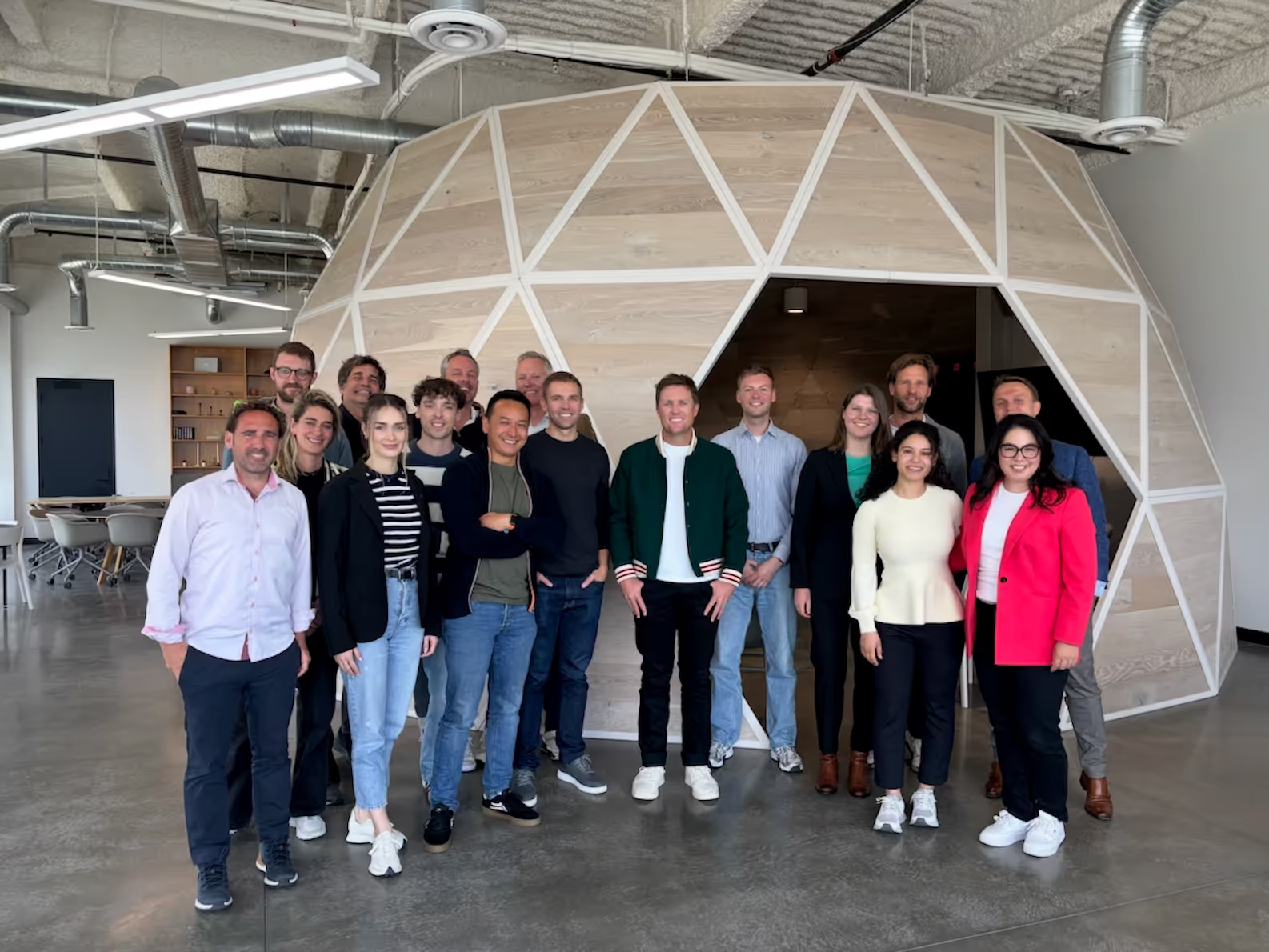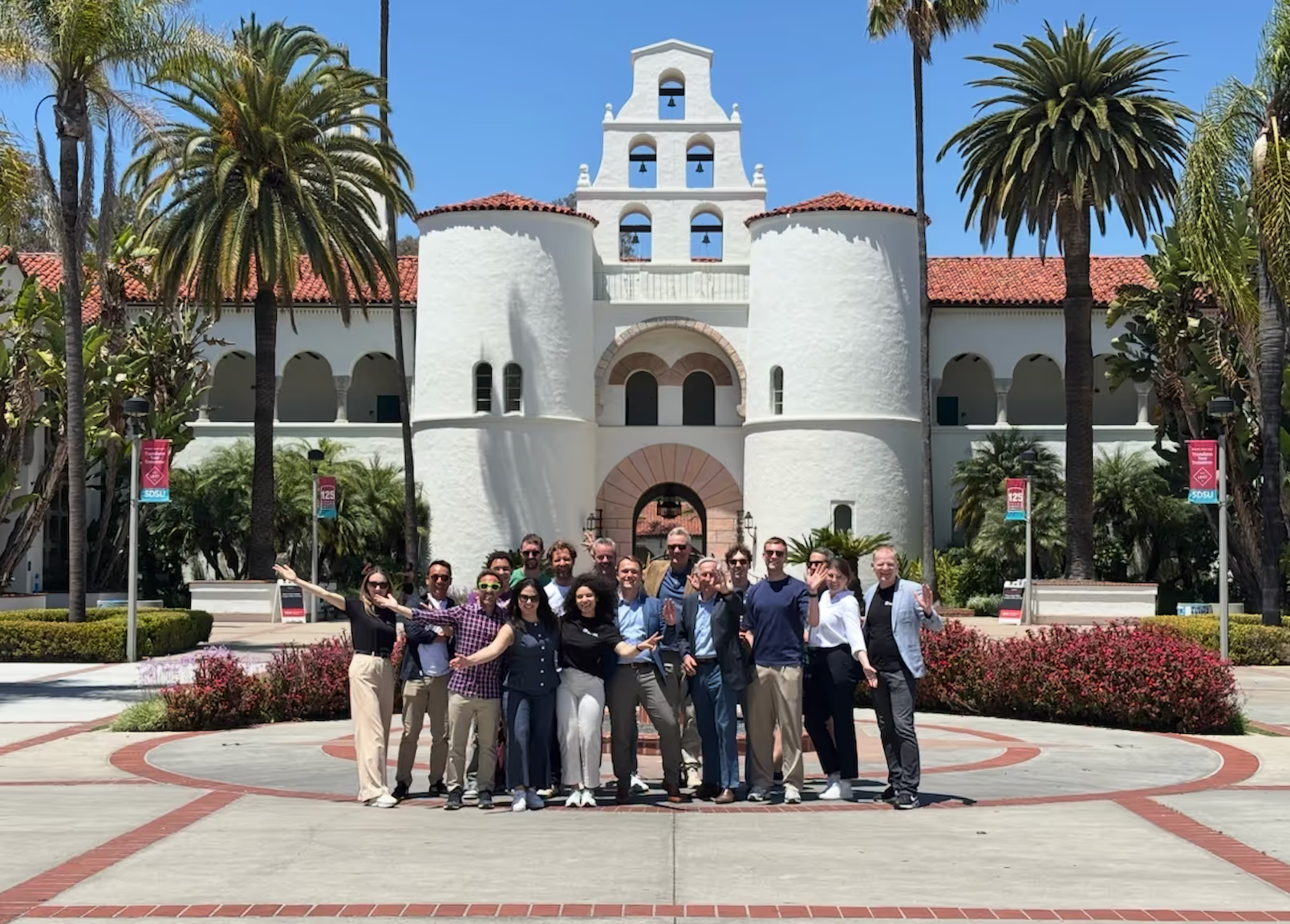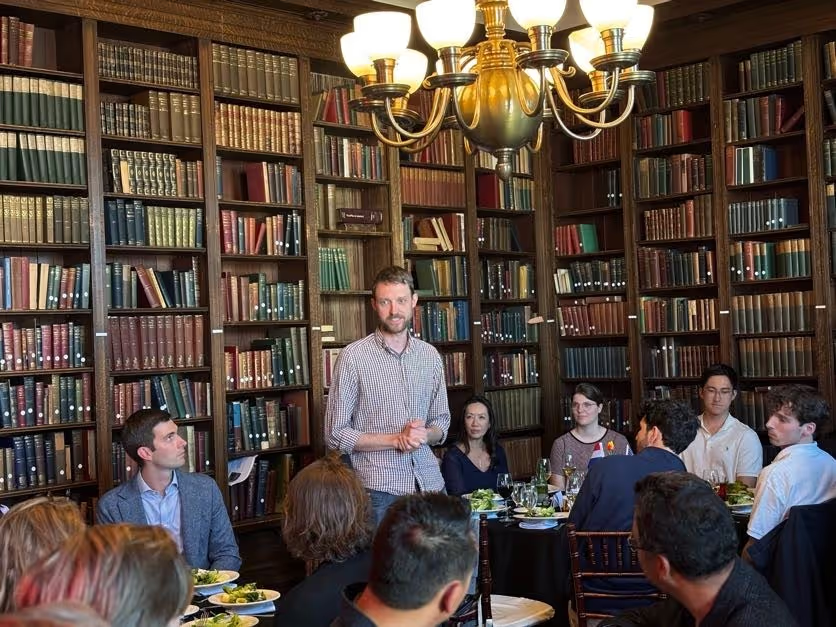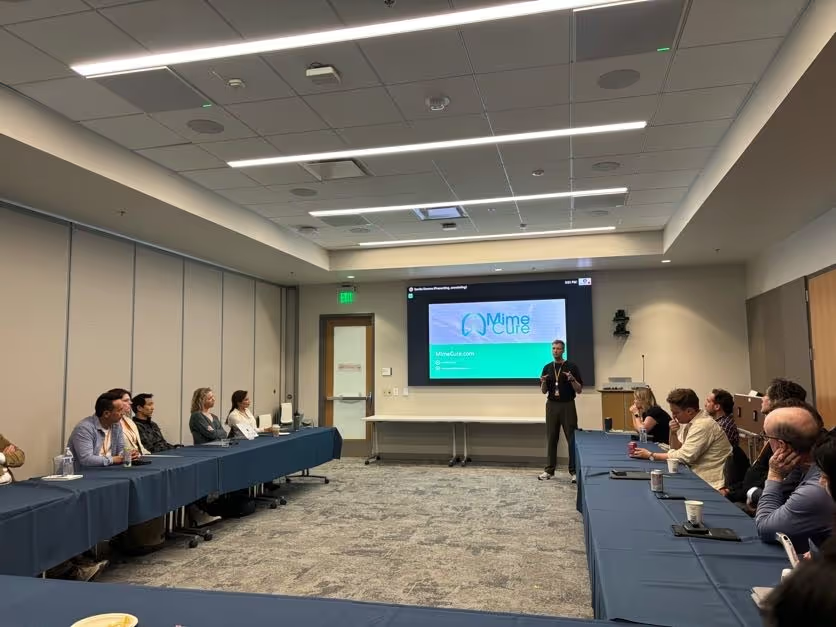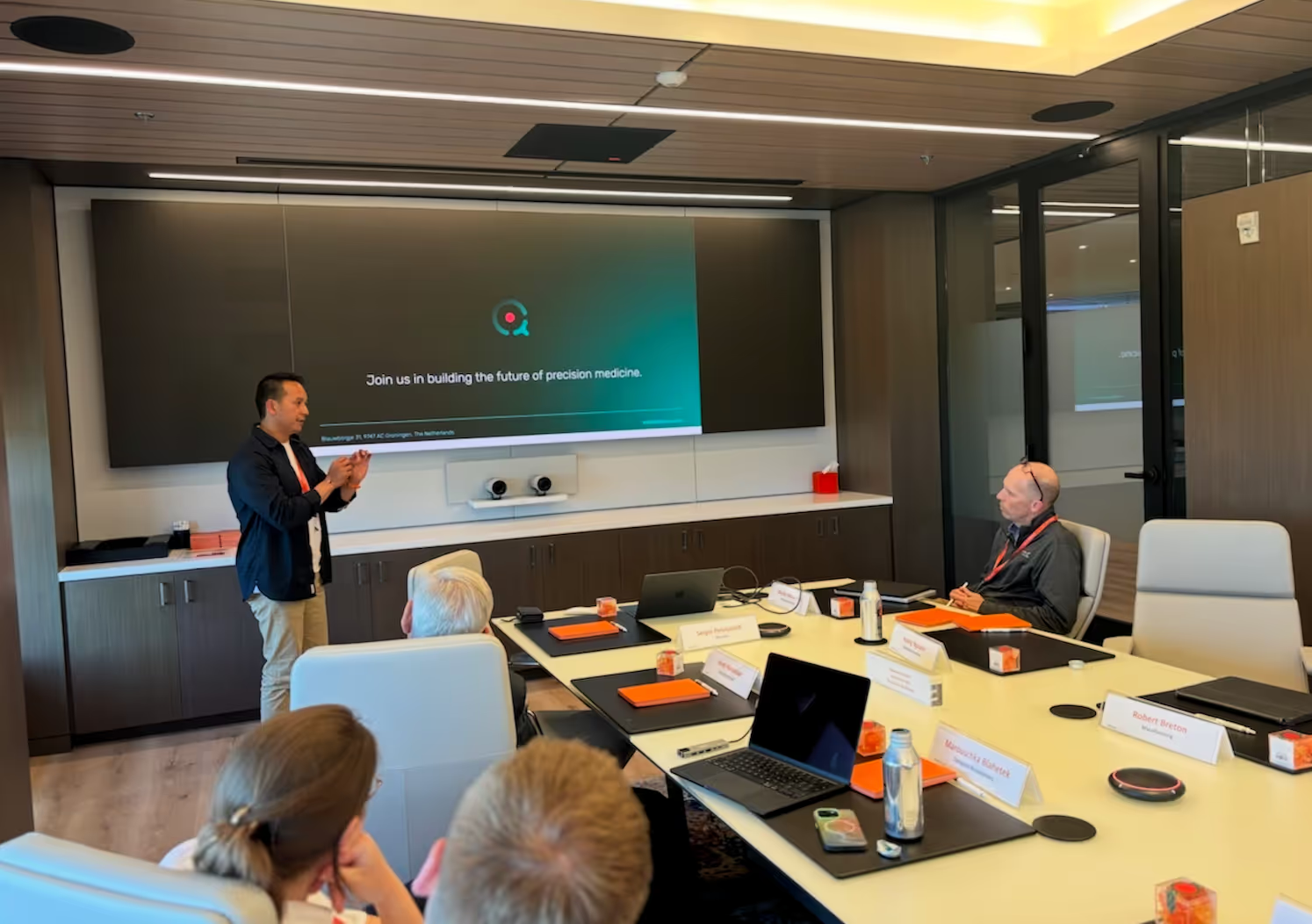Academic Startup Competition: These three deep-tech startups from Groningen made the top 10
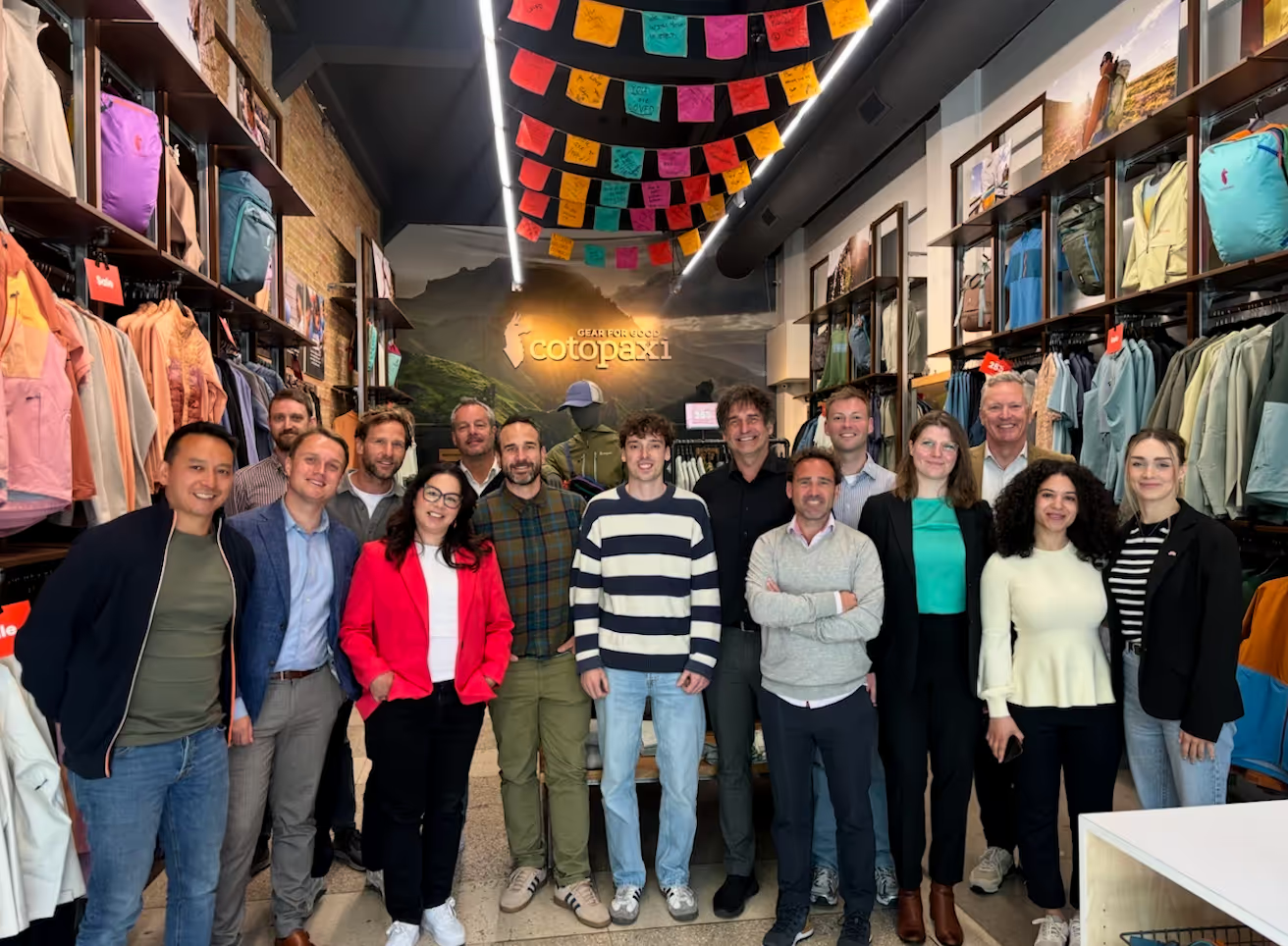
More than 70 Dutch startups were nominated for the Academic Startup Competition. Only 40 were allowed to participate and at the end of the selection process, only 10 teams were standing, three of which came directly from Groningen. Luke van der Koog of MimeCure, Ruben Hamming-Green of ImChip and Hoang Nguyen of QT Sense: three scientists with breakthrough technologies and ideas, telling their story about a week in America that changed their perspective on entrepreneurship forever.
What is the Academic Startup Competition?
The Academic Startup Competition is an annual program by the Ministry of Economic Affairs, TechLeap and Dutch universities to prepare academic startups for international markets. The ten winners will travel to Silicon Valley with ScaleNL for access to investors, entrepreneurs and the US startup ecosystem.
Three different roads, one destination
Luke van der Koog of Mime Cure is developing a regenerative therapy for the lung disease COPD, the third cause of death worldwide. During his PhD at the University of Groningen, he discovered the protein osteoglycin, also known as mimecan, that can repair damaged lung tissue. “We found out that there was actually nothing left to find about this protein in relation to COPD”, he says. This unique position made the patent valuable and formed the basis for his company.
Ruben Hamming-Green brings a special perspective: ten years ago, he moved from America to the Netherlands. Now he returned to the USA as an entrepreneur. His company ImChip develops energy-efficient AI chips with memristor technology. “AI will be the world's fourth largest economy regarding energy consumption”, he explains. “But the chips currently being used for AI are incredibly energy inefficient, because they were really designed for different tasks. It's like digging a hole with spoons instead of an excavator.”
Hoang Nguyen of QT Sense is working on perhaps the most futuristic technology: quantum sensing with nanodiamonds. “A diamond in combination with a biosensor. I never thought of that”, he recalls his first reaction to this research. For the first time, his team can show what happens in living cells in real time, making it possible to detect diseases such as sepsis and Alzheimer's early.
Groningen breeding ground
All three are affiliated with the University of Groningen. The university and this region have positioned themselves as an incubator for these types of startups. Professor Romana Schirhagl, the inventor, Hoang's co-founder and the driving force behind the research, has been very successful in raising research money over the past ten years to conduct further research in the field of quantum sensing. Luke received support from the Biotech Booster Program, Pharma Connect Capital and the Lung Fund. Ruben's team raised funding through FTV Ventures.
Everyone is so driven and passionate. That is really nice to see.
From 70 to 10: The selection process
The Academic Startup Competition started for all three with a nomination by their TTO (Technology Transfer Office). The program is designed as an intensive process where teams are challenged step by step with workshops about fundraising, patents and pitching, combined with elimination rounds.
“We took it very seriously because we're all academics by nature”, says Ruben. “I didn't know anything about companies at all.” For Hoang, it was mainly the value of the network that was created: “Everyone is so driven and passionate. That's really nice to see.”
The process led to a pitch competition. “Everyone was allowed to pitch for three minutes,” Luke recalls. A jury finally decided which teams were allowed to advance to the United States. For all three, the selection was an important validation of their technology and business case.
Three cities in five days
On May 17, the ten winners flew to the United States for a hectic program, visiting Salt Lake City, San Diego, and San Francisco in five days. “I arrived in Salt Lake City on Sunday evening. One day there, then an evening flight to San Diego for another day of programming, followed by another evening flight to San Francisco,” Ruben describes the route. “I'm still recovering.”
For Luke, discussions with pharmaceutical companies were the highlight. “I got to pitch to Genentech, who also happen to have a COPD drug in the clinical pipeline themselves. These are doors that normally stay closed, but through such a program, you are still exposed to them.”
Hoang was particularly affected by the scale of American ambitions. “We were with a company called The Podium. Two young boys who had an annual recurring revenue of $250 million. And they said very relaxed: “We're targeting 1 billion next year.” It was just very normal for them.”
Ruben experienced the return to the American mentality as a culture shock: “I'm left for a reason. But there's also an energy that comes with it. People are really interested in what you're doing, it was a week filled with a lot of very short quick connections.”
In America, it seems like people spend all day meeting people and connecting.
Dutch sobriety meets American drive
All three of the cultural differences were noticeable. “In America, it seems like people spend all day meeting people and connecting,” observes Ruben. “Whereas in the Netherlands, people are a bit more reserved. It feels like less of a big social club.”
In particular, Luke saw how different the American approach is: “You notice how much enthusiasm there is and how eager people are to contribute ideas. Even if they may not have the relevant knowledge themselves, they do know someone within their network who they want to introduce you to.”
Hoang was inspired by the bigger visions: “I think that in the Northern Netherlands or the Netherlands, we sometimes forget how big something can become. Maybe it's because of the capital that's available here. Or because of the number of exits we have here. We can and need to think much bigger, so that's what I'm trying to do.”
Lessons for the future
The trip gave all three a different attitude. “My attitude has changed,” says Hoang. “We need to go to market much more and get market validation more quickly. In the Netherlands, we are very cautious about certain things, which is also good, but you should try to see: is there a certain market pull?”
For Ruben, the most important lesson was simplicity: “What was really hammered in again and again was: just focus on the absolute most simple element that you can do and just do that really well. As academics, we want to explore everything, but there's just no time to understand it as fully. This is a paradigm shift for me.”
Luke particularly highlights the value of the network: “It's mostly talking to a lot of people and going to events. That is very different than as a researcher.” All three are still in touch with people they met with, from investors to pharmaceutical companies. The market to the world has opened.
Shoot for the moon!
Thinking big from the north
Back in Groningen, the three are continuing to work on their missions - Luke towards his first clinical trial in 2028, Ruben on revolutionizing data centers and Hoang on a global implementation of quantum sensing. But the American experience has taught them to think bigger.
“Shoot for the moon”, Hoang summarizes the American mentality. “That is now Mars or Pluto. But that helps enormously in how you can further shape the company. By setting a certain point on the horizon.”
Their story shows how Dutch scientists can learn from an American entrepreneurial mentality without losing their own values. With their feet firmly in the Groningen research ground and their eyes focused on global impact, they prove that you can think and act big from the north.
Interview & text by Lars Meijer

